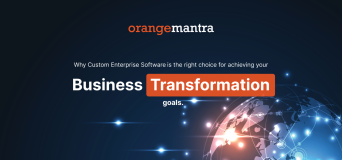The economic sluggishness caused by COVID-19 has triggered uncertainties across industries. Businesses are have become reluctant plan, market, or launch their products. Market needs and consumer behaviors are changing more rapidly than ever. That’s the reason brands are struggling with long-term marketing strategies. Agile marketing enables you to overcome these challenges head-on. This marketing strategy requires quick thinking and an insights-based approach.
The pandemic has accelerated digital transformation in the commercial world. That means consumers are now more connected than ever. Agile marketing suits such as market dynamics. It offers immense flexibility to brands. Marketers who can leverage this flexibility succeed even in uncertain environments like the one we’re experiencing. Such marketing practices are usually aided by an Agile development service to create the right tech solutions. In this blog post, we will talk about how agile marketing can create new business opportunities for your brand even as market conditions remain unpredictable.
Key elements of agile marketing
Agile marketing relies on processes to quickly respond to complex marketing changes and business challenges. It leverages sophisticated software tools and tech-enabled methods to predict market demands. Here’s a list of the most important elements of an effective agile marketing strategy.
- Customer-focused approach
- Data-driven campaigns
- Small experiments
- Cross-functional teams
A marketing team simultaneously run multiple marketing campaigns using these tried and tested elements. The team can use different ideas for different campaigns while closely monitoring the effectiveness of every campaign.
Overcoming creative restrains
Traditional marketing methods have a history of facing creative roadblocks. Your marketing team may spend months studying consumer behavior only to find out that one global event changed every trend. Agile marketing comes for rescue in such difficult situations. If you want to run a successful marketing campaign in an incalculably dynamic world, streamline the content creation process.
The content development process should be guided by defined guidelines. At the same time, encourage content creators to think out of the box. The contents should be based on the most recent trends in the market. Clearly define the people who need to be involved in content decisions. Prepare a set of content library based on extensive research. Measure how quickly the content team responds to changing trends and launch campaigns that engage the audience.
Seeing trends before they happen
Predicting market trends key to the quick success of your agile marketing strategy. Marketers today are equipped with a swarm of highly efficient digital tools that can predict market trends. In fact, with the right agile development service, you can build custom marketing solutions and analytic dashboards. Using predictive capabilities, you can expand the time horizon of your marketing campaigns.
Advanced marketing automation solutions can remove potential human bias associated with manual monitoring by humans. This also allows precise monitoring across a vast set of data. Automation of certain functional areas could be game-changing for marketing managers. These techniques are particularly useful in managing major marketing campaigns associated with corporate events, sports tournaments, and award shows, among other things. These are instances where brands spend a significant amount of their marketing budget.
COVID-19 as a catalyst for agile marketing
Until a few months ago, most brand managers were reluctant to adopt agile marketing. And then the pandemic hit. It changed everything. Marketing was no exception. Complacency about market conditions has long been a major roadblock to adopting agile marketing. As time became more uncertain, marketing managers were forced to change tack. That’s where the popularity of agile marketing started to grow rapidly.
Business leaders are now more open to new ideas and dynamism. Everything is so risky and uncertain that agile marketing seems more realistic now than ever. However, digital-first organizations were already somewhat prepared for such a challenge time. Businesses that had fully leveraged digital transformation services responded to the pandemic more calmly and efficiently. Marketing experts believe this is the right time to get rid of the misinformed attitude toward agile marketing and start embracing the method strategically.
Conclusion
As teams increasingly get distributed while working remotely, it creates room for thinking out of the box, a key ingredient of agile marketing. With a rapidly evolving digital marketing, brands can adjust their campaigns according to the shifted market. Today, advanced technologies like IoT and machine learning give deeper insights into consumer behavior and market trends. Businesses must use these solutions to efficiently achieve their marketing goals and create revenue streams amid the crisis.
At OrangeMantra, a pioneering digital transformation agency, we work in close collaboration with marketers and brand managers from across industries. Using the most advanced breed of software development tools, we build digital solutions that enhance the operational and marketing capabilities of businesses. Our focus on emerging technologies like big data analytics, ML, and AI gives impetus to continuous innovation.
FAQs
Q. What does agile marketing mean?
Agile marketing is a marketing method focused on delivering value to customers quickly as their needs change. Agile marketing involves organizational strategizing such as refining internal processes and creating cross-functional teams dedicated to working in frequent iterations to improve marketing tactics.
Q. What is data-driven marketing?
Data-driven marketing is an approach to optimizing brand communications based on customer information. Data-driven marketers use customer data to predict their needs, interests, and future behavior, among other things. Such insight helps develop personalized marketing strategies for an optimal ROI.
Q. What is content marketing?
Content marketing is a marketing approach aimed at creating and distributing valuable, relevant, and consistent content to attract the audience. The audience is usually clearly defined. Content marketing is focused on driving profitable customer action.






















